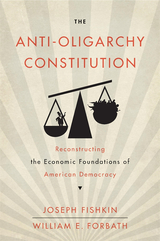6 start with H start with H

One day in 2002, three friends—a Somali immigrant, a Pakistan–born U.S. citizen, and a hometown African American—met in a Columbus, Ohio coffee shop and vented over civilian casualties in the war in Afghanistan. Their conversation triggered an investigation that would become one of the most unusual and far–reaching government probes into terrorism since the 9/11 attacks.
Over several years, prosecutors charged each man with unrelated terrorist activities in cases that embodied the Bush administration’s approach to fighting terrorism at home.
Government lawyers spoke of catastrophes averted; defense attorneys countered that none of the three had done anything but talk. The stories of these homegrown terrorists illustrate the paradox the government faces after September 11: how to fairly wage a war against alleged enemies living in our midst.
Hatred at Home is a true crime drama that will spark debate from all political corners about safety, civil liberties, free speech, and the government’s war at home.
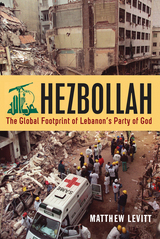
Hezbollah: The Global Footprint of Lebanon's Party of God is the first thorough examination of Hezbollah’s covert activities beyond Lebanon’s borders, including its financial and logistical support networks and its criminal and terrorist operations worldwide.
Hezbollah—Lebanon’s "Party of God"—is a multifaceted organization: It is a powerful political party in Lebanon, a Shia Islam religious and social movement, Lebanon’s largest militia, a close ally of Iran, and a terrorist organization. Drawing on a wide range of sources, including recently declassified government documents, court records, and personal interviews with intelligence and law enforcement officials around the world, Matthew Levitt examines Hezbollah’s beginnings, its first violent forays in Lebanon, and then its terrorist activities and criminal enterprises abroad in Europe, the Middle East, South America, Southeast Asia, Africa, and finally in North America. Levitt also describes Hezbollah’s unit dedicated to supporting Palestinian militant groups and Hezbollah’s involvement in training and supporting insurgents who fought US troops in post-Saddam Iraq. The book concludes with a look at Hezbollah’s integral, ongoing role in Iran’s shadow war with Israel and the West, including plots targeting civilians around the world.
Levitt shows convincingly that Hezbollah’s willingness to use violence at home and abroad, its global reach, and its proxy-patron relationship with the Iranian regime should be of serious concern. Hezbollah is an important book for scholars, policymakers, students, and the general public interested in international security, terrorism, international criminal organizations, and Middle East studies.
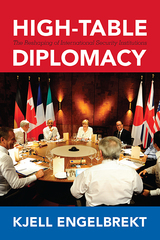
The proliferation of “minilateral” summits is reshaping how international security problems are addressed, yet these summits remain a poorly understood phenomenon. In this groundbreaking work, Kjell Engelbrekt contrasts the most important minilateral summits—the G7 (formerly G8) and G20—with the older and more formal UN Security Council to assess where the diplomacy of international security is taking place and whether these institutions complement or compete with each other.
Engelbrekt’s research in primary-source documents of the G7, G8, G20, and UN Security Council provides unique insight into how these institutions deliberate on three policy areas: conflict management, counterterrorism cooperation, and climate change mitigation. Relatively informal and flexible, GX diplomacy invites more countries to take a seat at the table and allows nontraditional security threats to be placed on the agenda. Engelbrekt concludes, however, that there is a continuing need for institutions like the UN to address traditional security problems.
High-Table Diplomacy will provoke discussion and further research on the role of minilateral summits among scholars of international relations, security studies, and international organizations.
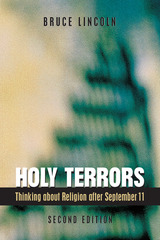
Holy Terrors begins with a gripping dissection of the instruction manual given to each of the 9/11 hijackers. In their evocation of passages from the Quran, we learn how the terrorists justified acts of destruction and mass murder “in the name of God, the most merciful, the most compassionate.” Lincoln then offers a provocative comparison of President Bush’s October 7, 2001 speech announcing U.S. military action in Afghanistan alongside the videotaped speech released by Osama bin Laden just a few hours later. As Lincoln authoritatively demonstrates, a close analysis of the rhetoric used by leaders as different as George W. Bush and Osama bin Laden—as well as Mohamed Atta and even Jerry Falwell—betrays startling similarities. These commonalities have considerable implications for our understanding of religion and its interrelationships with politics and culture in a postcolonial world, implications that Lincoln draws out with skill and sensitivity.
With a chapter new to this edition, “Theses on Religion and Violence,” Holy Terrors remains one of the essential books on September 11 and a classic study on the character of religion.
“From time to time there appears a work . . . that serves to focus the wide-ranging, often contentious discussion of religion’s significance within broader cultural dynamics. Bruce Lincoln’s Holy Terrors is one such text. . . . Anyone still struggling toward a more nuanced comprehension of 9/11 would do well to spend time with this book.”—Theodore Pulcini, Middle East Journal
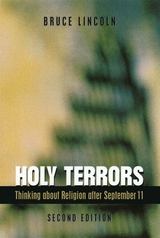
Lincoln begins with a gripping dissection of the instruction manual given to each of the hijackers. In their evocation of passages from the Quran, we learn how the terrorists justified acts of destruction and mass murder "in the name of God, the most merciful, the most compassionate." Lincoln then offers a provocative comparison of President Bush's October 7 speech announcing U.S. military action in Afghanistan and Osama bin Laden's videotape released hours later. Each speech, he argues, betrays telling contradictions. Bin Laden, for instance, conceded implicitly that Islam is not unitary, as his religious rhetoric would have it, but is torn by deep political divisions. And Bush, steering clear of religious rhetoric for the sake of political unity, still reassured his constituents through coded allusions that American policy is firmly rooted in faith.
Lincoln ultimately broadens his discussion further to consider the role of religion since September 11 and how it came to be involved with such fervent acts of political revolt. In the postcolonial world, he argues, religion is widely considered the most viable and effective instrument of rebellion against economic and social injustices. It is the institution through which unified communities ensure the integrity and continuity of their culture in the wake of globalization. Brimming with insights such as these, Holy Terrors will become one of the essential books on September 11 and a classic study on the character of religion.

The contributors to this special issue offer critical perspectives on the many fronts of the global “war on terror” and reveal continuities and discontinuities within familiar strategies of political control, racial discrimination, and state-sanctioned violence. Featured articles explore such issues as the intersection of racism, homophobia, and imperialism at Abu Ghraib; the conundrum faced by economically disadvantaged Latino youth who find themselves doubly targeted by aggressive army recruitment and anti-immigration activity; and the ways that rhetoric and policies of homeland security have provided new legal tools in the ongoing project of defining “real Americans” through exclusion and state violence. Other essays examine the role of the military in civilian spaces, the right-wing assault on progressive historians and on area studies, librarians’ efforts to protect the privacy of their patrons’ records in light of the Patriot Act, and the role of intellectuals in resisting everyday forms of control and surveillance.
Contributors. Barbara Abrash, Lori A. Allen, Jerry Atkin, Rachel Tzvia Back, Francisco E. Balderrama, Beatriz da Costa, Lara Z. Deeb, Eric Hiltner, Martha Howell, Lawrence Jones, Burçak Keskin-Kozat, R. J. Lambrose, Jorge Mariscal, Joseph Masco, Conor McGrady, Quincy T. Mills, Priscilla Murolo, Enrique C. Ochoa, Claire Pentecost, Kavita Philip, Vivian H. Price, Jasbir K. Puar, Eliza Jane Reilly, Natsu Taylor Saito, Ellen Schrecker, David Serlin, Rogers M. Smith, Marc Stein, Matias Viegener, Kath Weston, Maurice B. Wheeler, Jessica Winegar
READERS
Browse our collection.
PUBLISHERS
See BiblioVault's publisher services.
STUDENT SERVICES
Files for college accessibility offices.
UChicago Accessibility Resources
home | accessibility | search | about | contact us
BiblioVault ® 2001 - 2024
The University of Chicago Press



